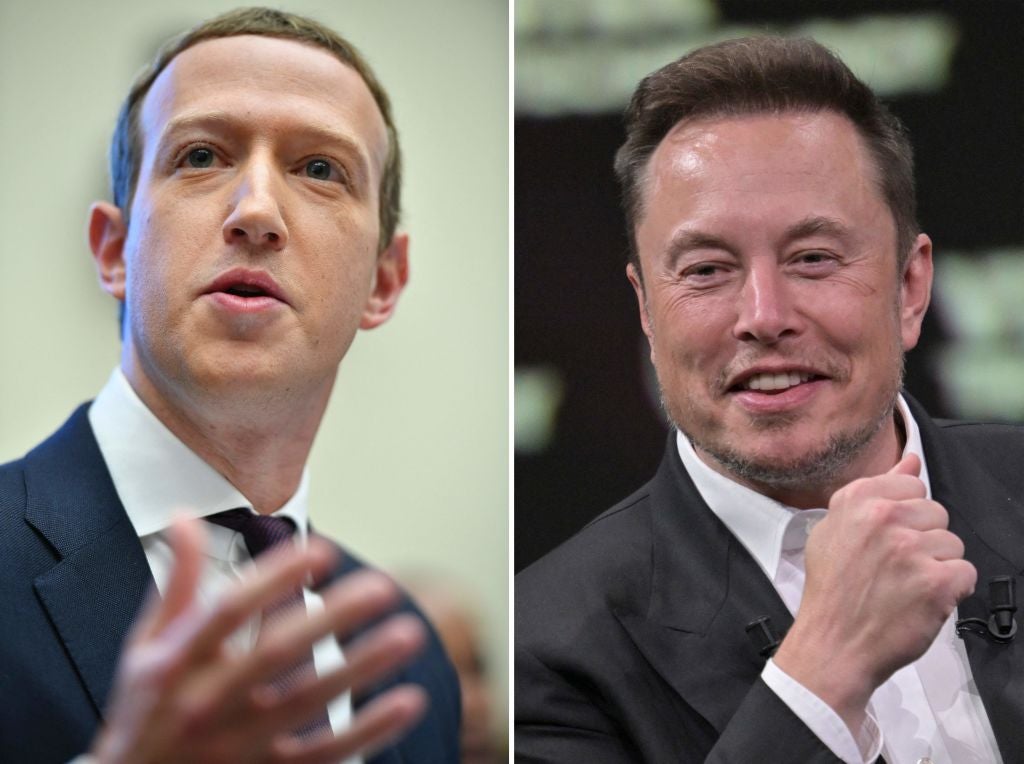
Meta CEO, Mark Zuckerberg, and new Twitter head, Elon Musk, have publicly agreed to a physical cage match fight – but the real battle for social media dominance is a feud that won’t be decided in a cage.
The two eccentric billionaires agreed to trade blows after Musk said in a Twitter post that he was “up for a cage fight” with Zuckerberg.
The Facebook boss responded by posting a screenshot of Musk’s tweet accompanied by the caption “send me location”.
Musk quickly replied on Twitter: “Vegas Octagon”.
It is unclear exactly when the cage fight between Zuckerberg and Musk will take place, but UFC President Dana White confirmed the two billionaires were “absolutely dead serious” about the match.
Whether or not this bizarre, albeit entertaining, fight actually happens, the feud between the two billionaires’ social media platforms is ongoing.
How well do you really know your competitors?
Access the most comprehensive Company Profiles on the market, powered by GlobalData. Save hours of research. Gain competitive edge.

Thank you!
Your download email will arrive shortly
Not ready to buy yet? Download a free sample
We are confident about the unique quality of our Company Profiles. However, we want you to make the most beneficial decision for your business, so we offer a free sample that you can download by submitting the below form
By GlobalDataTwitter and Facebook have been fighting for market dominance since they were first launched.
Facebook, launched by Zuckerberg in 2004, has consistently been a bigger fish than its competitor Twitter, which was founded by Jack Dorsey and three others in 2006.
“In the social media space, Meta outperforms Twitter in terms of users, and profit,” Amelia Connor-Afflick, analyst at research firm GlobalData, told Verdict.
“But Twitter is undergoing a huge change in terms of its culture under Elon Musk, sewing the seeds for it to compete with Meta in a different way,” Connor-Afflick added.
It was recently announced that Meta will be releasing a Twitter competitor that it says will be embedded into its popular photo-sharing platform Instagram.
Due to be released soon, the Twitter rival will allow users to share “timely updates about their interests,” a Meta spokesperson told the BBC.
This is likely to heighten the fight for users between the two social media platforms and could threaten Twitter’s user base dwindling further.
However, while the two platforms go head-to-head, both sides are fighting some of the same issues in their industry.
The handling of harmful content and data privacy breaches are challenges both Facebook and Twitter face.
“While they may be competing for users and to continue their “network effects” by having the largest user bases, they both have to address a large number of similar obstacles,” Connor-Afflick said.
Adding: “This is of paramount importance in order to restore user trust and to maintain a sustainable business model.”
Twitter has faced criticism for its handling of hate speech and disinformation since Musk took over as CEO last year. The SpaceX founder saw a decline in Twitter’s user base after it was reported he was laying off huge numbers of the platform’s staff, including the Trust and Security teams.
“However, one could argue that this was all done under ‘free speech’ and that Musk is instead trying to appeal to a more politically right-wing user base compared to Zuckerberg,” Connor-Afflick said,
“If this is the case, their competition becomes more nuanced and less direct, while they may be seeking higher user growth and profitability and to be dominant players in the field, if they appeal to different user bases then we can’t expect them to compete directly.”
Meta has come under fire for its handling of harmful content too. Just last year, a lawsuit against the tech giant claimed the company promoted hate speech on Facebook that led to ethnic violence in Ethiopia.
“The spread of dangerous content on Facebook lies at the heart of Meta’s pursuit of profit, as its systems are designed to keep people engaged,” said Flavia Mwangovya, Amnesty International’s deputy regional director for East Africa.
Connor-Afflick believes that it’s “unlikely” that Meta will be able to provide an alternative to Twitter without issues surrounding harmful content.
“Meta needs to show it can be a safe alternative to Twitter for it to cause serious issues [to Twitter],” Connor-Afflick said.






